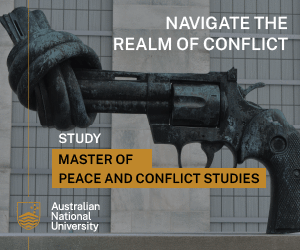The Overarching Dilemma Of Aid Is That It Is Needed Most In Those Countries In Which The Prospects For Its Being Most Effective Are The Poorest. Discuss
Donors are distributing foreign aid, to certain poor countries only. The most prominent justification for this policy action is as the statement suggests, ‘the prospects for aid being most effective are the poorest’ in these countries. This paper will ascertain how donors have come to reach this development policy, by analyzing the evolving theories and trends of aid. However it will also suggest that the justification, on which the current policy agenda is set, is not founded upon robust assumptions.
To What Extent Is The Relationship Between Northern NGOs and Southern NGOs Based On Partnership and Free From Local and International Agendas?
Through its evaluation supported by case studies, this paper will argue that to an extent the relationship between the two sets of NGOs is based upon partnership. However it will go on to argue that to a greater extent, the relationship between NNGOs and SNGOs is not free from local and international agendas and as a result, the power sharing context of partnership disproportionately favours the NNGOs.
Obama’s Foreign Policy Challenges
The election of Barack Obama as American President has seen unprecedented interest in American politics, not only domestically but also internationally. There is no doubt that he is a superb orator and with his message of change for which over 60million Americans voted for, we have witnessed history in the making. But what are the immediate foreign policy challenges facing the new Obama administration, and how will his style of leadership and conduct of foreign policy differ from that of the Bush administration?
The Fourth Pillar: Power as a Source of Legitimacy
Max Weber’s concept of legitimate authority rests on three principal pillars: tradition; legality; ideology. In this essay, I propose a fourth pillar – power, and show how it can be as important a source of legitimacy as tradition, legality, and ideology. In asserting that power itself can be politically legitimating, I do not imply that it is devoid of any support from the other three pillars.
Did JFK have an Exit Strategy for Vietnam?
In recent years declassified documents relating to attempts by the Kennedy administration at withdrawing US forces from the conflict in Vietnam have been released, causing much debate among scholars and historians. Previously not much was written about Kennedy’s decision to withdraw US personnel from Vietnam in over 40 years of historical writing.
Strategic Interdependence between Local NGOs and Foreign Donors
This essay argues that the relationship of strategic interdependence between local NGOs and foreign donors is inherently asymmetrical and has important organizational and managerial consequences for NGOs in terms of their identity, activities and reporting; autonomy, legitimacy and accountability; and, in that it further perpetuates global/local and North/South asymmetries.
Lessons in Nation-Building: The American Reconstruction of Germany and Japan
In this paper I will assess an important element of American foreign policy, that of nation building. I will focus on the American reconstruction of Germany and Japan in the aftermath of the Second World War and to evaluate their impact and successes and to ascertain whether those lessons on nation-building can be implemented today in Afghanistan.
Conceptualising Global Governance in International Relations
The questions of how the concept of global governance can be used to describe the prevailing global order and what is the most appropriate way of formulating the concept of global governance challenge the limits of traditional IR theory to explain a world where the shape and importance of individual states is changing and the role of agents above and below the state is increasing.
Is Global Capitalism Eroding the State?
This article is a response to the pervasive rhetoric that globalisation, in particular the associated implication that capitalism is an expanding global force that is inextricably enmeshed within globalisation, has been and continues to erode the state.
An Analysis of the Difficulties Associated with Establishing State Responsibility for Human Rights Violations Occurring as a Result of Climate Change
Despite conclusive and significant scientific evidence to the contrary, there is still some considerable scepticism over the nature, causes and consequences of climate change. However, it is becoming increasingly apparent that extreme weather events such as floods, droughts and cyclones, as well as retreating glaciers and melting sea ice at the North and South poles, are all indicative of a warming world.





